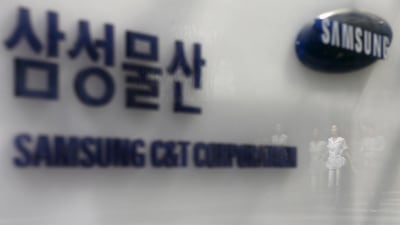Qatar Rail, the body responsible for delivering the US$17.8 billion Doha Metro project, has terminated the contract of the consortium that was building its main stations.
The $1.4bn design and build contract to construct the major Msheireb and Education City stations had been awarded to a consortium comprising the South Korean builder Samsung C&T, Spanish contractor Obrascon Huarte Lain (OHL) and Qatar Building Company in May 2013.
But in a statement, OHL said that it had received notification of its contract’s termination within the next 14 days, citing “non-compliance of certain contractual obligations”.
Samsung C&T held a 50 per cent stake in the consortium, while OHL held 30 per cent and Qatar Building held 20 per cent.
OHL said that before its contract was terminated, the consortium had presented the clients with several points of dispute, which, under the terms of the contract, should have led to some form of negotiation of formal arbitration, rather than the termination of its contract.
The Spanish contractor also said that the reasons given for its termination “lack any legitimate grounds”. It said that as a company it only had work outstanding to the value of €247.7 million (Dh1.04bn).
The major stations contract is a key part of the Doha Metro project. Msheireb is the central station, linking all three of the lines under construction during the project’s first phase (red, green and gold).
Education City is the starting point for the green line, and also the connection point between the metro and Qatar’s proposed long distance rail network.
A spokesman for Qatar Rail said that it has now appointed Consolidated Contractors Group to take over the project. It argued that its decision was taken on “solid contractual grounds”.
Qatar Rail stated that it would take every step to protect its rights and believes that its decision was made on solid contractual grounds.
The spokesman also said that it was working to ensure that it will “minimise delays and risks to this part of the Doha Metro project”.
He added: “Work will continue on the Major Stations project sites as planned, and discussions are under way with the subcontractors to ensure continuity.”
Qatar Rail recently announced that tunnelling activity was about 90 per cent complete and that the overall Doha Metro project was nearing 40 per cent completion.
In December, Markus Demmler, senior director of the Qatar Integrated Rail Project, said that progress was being made at Msheireb station, which had about 2,000 workers on site.
He told the body responsible for the delivery of the Fifa 2022 World Cup, the Supreme Committee for Delivery & Legacy, that it was “one of the biggest metro stations under construction anywhere in the world”.
He added that the station would be completed by mid-2018.
The entire first phase of the Doha Metro project, which will contain 86km of tracks and 38 stations, is due for completion in 2019.
This week, Qatar was named as the second-best market globally for infrastructure investment by the construction consolutancy Arcadis. It said Qatar has the third-richest economy in the world in terms of GDP per capita, and has maintained heavy investment in infrastructure, suffering from declining hydrocarbon revenues.
mfahy@thenational.ae
Follow The National's Business section on Twitter


